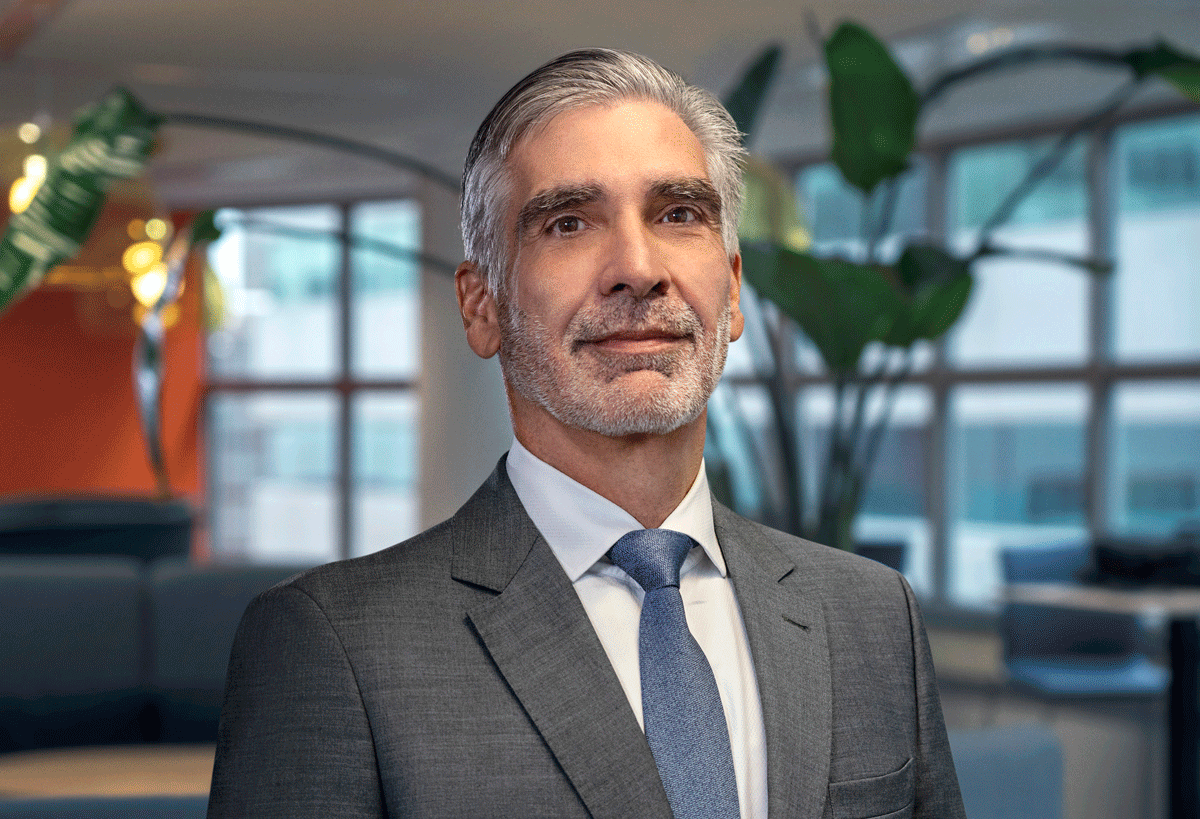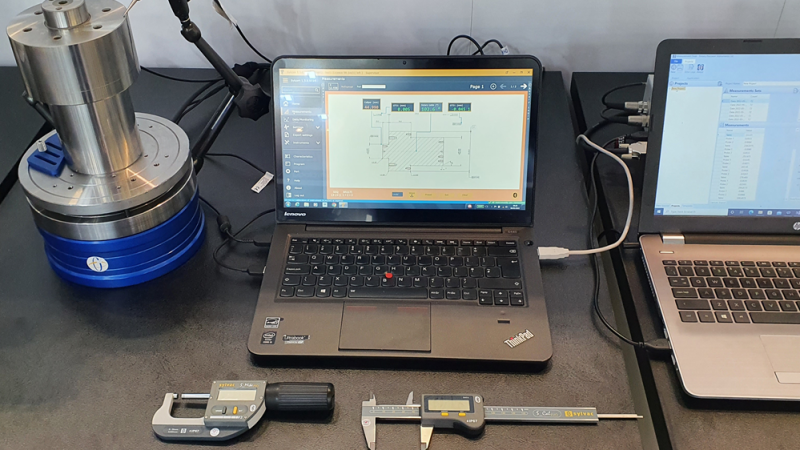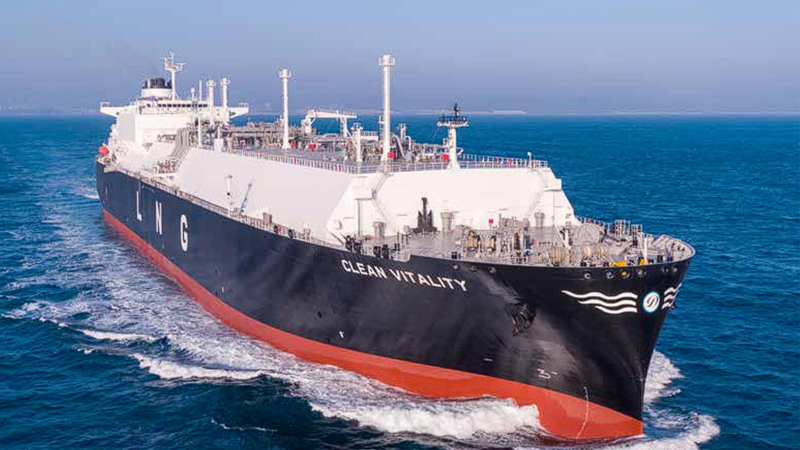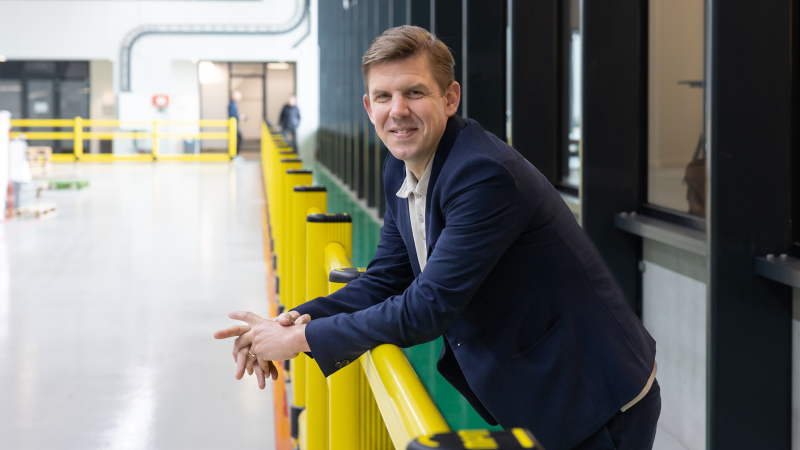Braskem delivers sustainable solutions in the plastic and chemical sector to improve people’s lives. As a pioneering and innovative chemical company, Braskem was formed in the early 2000s in Brazil and expanded its commercial reach across the world through a series of acquisitions in the USA, Europe and investment in Mexico. Braskem is currently the sixth-largest thermoplastic resins (polyethylene, polypropylene and others) producer in the world.
“We have built a reputation as an innovative leader in the chemical industry worldwide.” says Walmir Soller, Braskem’s Vice President for Europe and Asia and responsible for the biopolymer business globally. “As a part of that reputation, we have always been committed to sustainability.” From its incorporation in 2002, Braskem made its first public commitment to sustainable development. Later in 2009, to guide its strategy, Braskem defined its first cycle of long-term sustainability commitments (2010-2020), called macro-objectives. In 2020 the macro-objectives were reassessed and renewed (2020-2030), considering the materiality matrix (assessing impact and relevance of issues) and in line with the UN 2030 Agenda and the Paris Agreement. In the same year, Braskem incorporated sustainability as one of the pillars of its corporate strategy.
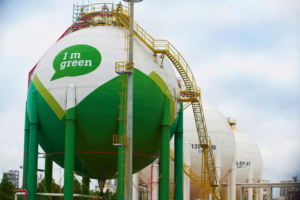 Storing Carbon in Biopolymers
Storing Carbon in Biopolymers
Braskem is the largest global producer of biopolymers, with an annual production capacity of 260,000 tons of I’m green™ polyethylene produced from sugarcane ethanol, a source that is 100% renewable. Polyethylene is everywhere – it is probably the material of several objects in the room you are sitting in, as it is used in a huge assortment of day-to-day packaging, home appliances, safety equipment, among others. Traditionally, the polymer is made from fossil feedstock (oil), thus its manufacturing process releases CO2 into the atmosphere.
By contrast, Braskem’s bio-based products serve as a pool where carbon from biogenic removal processes can be stored. Storing removed carbon in products can contribute to slowing down the rate of global warming and delaying accumulation of CO2 emissions in the atmosphere. Considering its lifecycle, Braskem’s Green PE has a potential to store 3.09 tons of CO2-equivalent per tons of polyethylene produced.
“We are a leading producer of biopolymers worldwide,” Soller says. “Going forward, we have the ambition to expand our production capacity to 1 million tons of biopolymers by 2030.”
At the same time, Braskem is also investing in recycled resins through innovative chemical and mechanical recycling technologies. In 2022, Braskem launched Wenew, an ecosystem dedicated to promoting and realizing the circular economy. The initiative is based on four pillars: products, education, technology, and circular design. Wenew contributes with specific actions to a circular economy that are in line with Braskem’s goals: commercializing 300,000 tons of products with recycled content by 2025 and one million tons by 2030. This goal includes products manufactured via mechanical and chemical recycling.
A Time to Invest
The firm made the decision to invest in a green polyethylene plant as early as 2007.
“The world was growing at a rapid rate, economies were booming around the world, and sustainability already was part of the agenda of several countries and multinationals,” Soller recalls. “It was a bold move to invest $300 million to produce polymer out of ethanol from sugarcane, but the global market was looking for sustainable alternatives.”
Within the petrochemical industry, it is commonly understood that time passes between making an investment in equipment, installing it and putting it into production.
“By the time we started the production of green polyethylene in 2010, Lehman Brothers had collapsed,” Soller tells us. “We took a decision to invest during a boom and by the time the plant started production, the world was recovering from a recession. So, the beginning of this business was not easy.”
However, perhaps surprisingly, Soller is grateful for those early challenges, which forced the company to go after different markets around the world, approach different brand owners, and find new applications for its products.
“We had to build the demand for our product,” Soller points out. “It was a new product on the market during a recession when everyone was consuming less than usual, but we persisted, developing applications for the product and learning about the importance of a sustainable feedstock chain.”
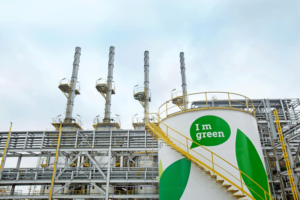 The Complete Package
The Complete Package
In pursuing those markets, Braskem has not compromised on quality or sustainability, as Soller explains.
“It is not just about getting the cheapest feedstock you can,” Soller insists. “We have a sustainable sourcing protocol in place. That means the supplier must meet the requirements before we will consider buying ethanol as a feedstock for our polyethylene. For example, we have requirements in terms of agricultural practices, biodiversity, social responsibility, and labour rights.”
Those requirements are core to Braskem’s business offering.
“When we deliver this product, we are not just delivering the product itself as part of a package, we are also tracking all the sustainability parameters to obtain that feedstock used to produce I’m Green Polyethylene,” Soller says.
When we speak with Soller, Braskem is undergoing an exciting time. Since 2019 the company has been working to increase the capacity of its specific bio-based portfolio to overcome the bottlenecks in the firm’s production line, which required additional investment. In 2023 the company invested 87$ million to expand its capacity by 30%, increasing the production of its plants from 200,000 tons a year to 260,000 tons a year. This amount has already been committed to the clients.
“Just recently we announced a joint venture with one of the leading petrochemical firms in Thailand, SCG Chemicals, to work together on a project to produce green polyethylene in Thailand. The project is planned to produce 200,000 tons of bio-based polyethylene a year. We are also working with local potential suppliers of sugarcane and ethanol to explain our responsible sourcing requirements. We are not just selling a product. We are developing a sustainable supply chain to deliver the product in the right way in the future.”
Braskem’s commitment to sustainability is visible in the business growth strategy, particularly in the company’s plans for the future.
“Our strategy for the future is grounded in the UN’s sustainable development goals,” Soller says. “We are focusing on climate change, which biopolymers can have a critical impact on by removing CO2 from the atmosphere. We are also investing to eliminate plastic pollution through mechanical and chemical recycling, and last but not least prioritising social responsibility and labour rights. Those three pillars are the basis for Braskem’s development and growth for the future.”
